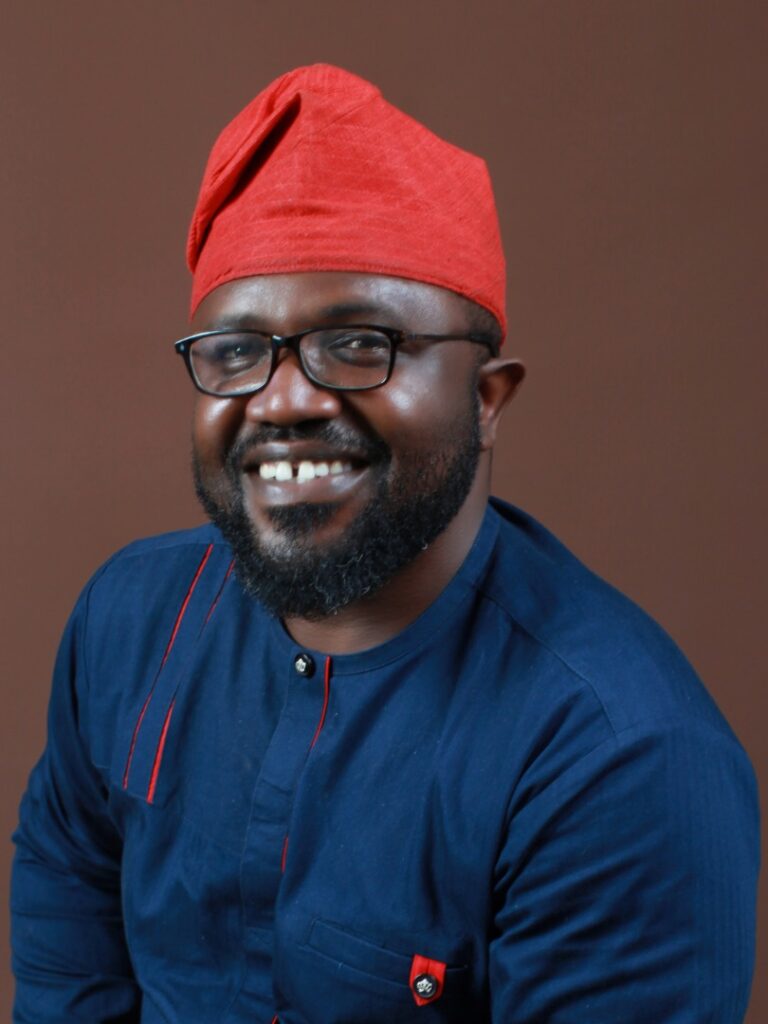Bankole Oloruntoba, CEO of the Nigeria Climate Innovation Centre (NCIC) and Finland’s Honourary Consul in Lagos, shares his journey from a small-town entrepreneur’s son to one of Nigeria’s most influential voices in climate innovation. In this exclusive interview, he discusses his career evolution, the state of Nigeria’s innovation ecosystem, and why policies are not Nigeria’s core problem.
Early Inspirations and Career Beginnings
Growing up in Zaria, Kaduna State, Oloruntoba spent countless hours in his father’s electronics store, observing trade and the dynamics of small-scale business. That early exposure planted the seeds of curiosity about how businesses function and thrive. While studying Economics at Ahmadu Bello University, his interest deepened.
Post-NYSC, he took on roles at Fate Foundation and Sleek Magazine before returning to Fate Foundation as Communications Lead. There, his perspective on entrepreneurship and innovation took shape, bolstered by exposure to numerous speakers and business leaders. His time at Fate provided an informal but valuable education, attending sessions alongside program participants.
This experience paved the way for consultancy roles in Abuja, where he helped digitize film rentals with the Video Film Censors Board and revamped Osun State’s youth empowerment and tourism initiatives.
His involvement in establishing the Abuja Technology Village and forming the Nigerian network of innovation hubs laid the groundwork for NCIC’s launch. Starting with just one team member, the centre slowly expanded, gaining credibility with support from Oando and launching the Embraer Incubation Program—an initiative that has since nurtured over 100 startups.
Educational Milestones That Shaped a Vision
Oloruntoba credits his academic foundation at ABU and an MBA from Business School Netherlands for refining his entrepreneurial outlook. Initially aspiring to a banking career, he pivoted toward communications and business development.
Business school changed how he approached leadership, operations, and marketing. More importantly, it taught him that strategic thinking and team building were central to scaling any venture. This mindset became a cornerstone of NCIC’s operations, particularly in building financial linkages for climate innovation.
Building Abuja’s Tech Ecosystem: Trials and Growth
When he started advocating for tech startups in Abuja, the city’s contract-driven mindset made it difficult to sell the startup model. The terms “startup” and “innovation hub” were unfamiliar and often dismissed.
He describes the early years as a constant uphill climb—convincing stakeholders, hosting events, and writing countless proposals. However, persistence paid off. As the ecosystem matured, so did acceptance. By 2014, interest in innovation hubs surged, and NCIC’s influence grew organically through partnerships and community building.
Climate innovation was another tough sell. Many struggled to grasp the concept or saw solar as its only valid form. Funding disparities were stark compared to NCIC’s counterparts in Kenya and Ghana, who had far more financial backing. Despite limited resources, Oloruntoba and his team focused on visibility, strategy, and persistence.
A Diplomatic Role Rooted in Innovation
His appointment as Honourary Consul of Finland in Lagos stemmed from his engagement with Finnish diplomats around green innovation and sustainability. As Finland looked to deepen its ties with Nigeria, Oloruntoba’s values and work at NCIC aligned with their national vision. After several conversations with Ambassador Jyrki Pulkkinen, he accepted the voluntary diplomatic role in April 2021, focusing on trade, cultural exchange, and bilateral cooperation.
Key Challenges: Human Capital and Sustainable Funding
Oloruntoba notes that recruiting and retaining talent remains a major challenge. Early on, NCIC couldn’t afford experienced professionals, so it invested in grooming promising individuals. Many of those hires have since grown into impactful professionals, though talent retention is still tough.
Funding is another constant hurdle. Innovation-driven ventures require capital to translate ideas into scalable solutions. To survive, NCIC had to rethink its model, creating modular programs that appeal to various funders without compromising its climate focus.
Nigeria’s Green Economy: Still Emerging
Although informal climate-related activity exists, Nigeria’s green economy is far from mature. A key problem is that many climate-tech solutions never move past the prototype stage due to lack of market integration and investor confidence.
“Climate startups often can’t rely on traditional financing,” Oloruntoba stresses. “We need models tailored to the realities of climate innovation. You can’t build an economy on grants alone.”
He also notes that the commercial viability of circular economy ventures remains underexplored and underfunded compared to solar energy, which dominates climate discourse.
Policy vs. Implementation: What’s Really Missing?
Nigeria, he believes, already has strong policies—ranging from the Startup Act to climate regulations and local production incentives. The real problem? Lack of execution.
“These policies exist, but what’s missing is follow-through,” he says. “It’s not enough to have frameworks. We need actual enforcement, funding pipelines, and public sector participation in adopting local climate solutions.”
Work-Life Balance and Personal Interests
Work-life balance, he says, is expensive—and you have to earn it before you can afford it. Despite a demanding career, he prioritizes time with family, enjoying simple moments of connection. A glass of wine, laughter with friends, and occasional reading help him recharge.
He’s open to new experiences, whether it’s a cultural event or a friend’s project in another state. Music provides a comforting backdrop, and travel offers rare opportunities for reading and reflection.
Final Thoughts
For Oloruntoba, everything—from entrepreneurship to diplomacy—is about creating meaningful change. Whether nurturing startups or representing Finland in Nigeria, his focus remains clear: building systems that work, creating value, and ensuring that innovation becomes a tool for national transformation.

